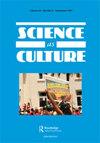亚马逊的指环:监控是一种滑坡服务
IF 2.4
3区 哲学
Q1 CULTURAL STUDIES
引用次数: 7
摘要
亚马逊的Ring视频门铃允许用户通过手机轻松看到摄像头范围内的人并与之交谈,将摄像头镜头记录并保存到云端,并分享可疑活动的视频(Molla, 2020)。尽管亚马逊将家庭安全监控系统和相关Ring产品(如邻居社交媒体应用程序、家庭安全摄像头、邮箱传感器和家庭监控无人机)作为消费者友好的智能家居工具来销售,以威慑和报告窃贼和包裹窃贼,但这项技术受到了广泛的批评。大多数谴责来自隐私权和民权活动人士。然而,一些学者和科技公司的员工也提出了批评。最强烈的立场是门铃摄像头应该被废除。“为未来而战”的负责人Evan Greer宣称,“像Ring这样的产品”“从根本上与基本人权和民主不相容”(Ongweso, 2020)。监控学者克里斯·吉利亚德(Chris Gilliard)坚持认为,一些“技术与自由公平的社会不相容”,包括门铃摄像头(Oremus, 2020)。一位亚马逊软件工程师甚至声称,“部署联网的家庭安全摄像头,允许集中查询视频,这与自由社会根本不兼容”(Peterson, 2020)。在科学技术研究(STS)传统中,“谦虚的学者活动家”是“公开的党派”,并打算“刺激社会行动”(Woodhouse等人,2002年,第301页),我们的目标是记录活动家的批评,并为Frank Pasquale(2019)所说的“第二波算法问责制”的研究轨迹提供进一步的概念证明。改革派的第一波方法侧重于改进技术本文章由计算机程序翻译,如有差异,请以英文原文为准。
Amazon’s Ring: Surveillance as a Slippery Slope Service
Amazon’s Ring video doorbells allow users to easily see and talk with people in camera range over their phones, record and save camera footage to the cloud, and share videos of suspicious activity (Molla, 2020). Although Amazon markets the home security surveillance system and related Ring products (e.g. Neighbors social media app, home security cameras, mailbox sensor, and home surveillance drone) as consumer-friendly, smart home tools for deterring and reporting burglars and package thieves, the technology has been widely criticized. Most of the condemnation comes from privacy and civil rights activists. However, some academics and tech-company workers also have been critical. The strongest position is Ring doorbell cameras should be abolished. Evan Greer, director of Fight for the Future, declares that ‘products like Ring’ are ‘fundamentally incompatible with basic human rights and democracy’ (Ongweso, 2020). Surveillance scholar Chris Gilliard insists that some ‘technologies are incompatible with a free and equitable society,’ including Ring doorbell cameras (Oremus, 2020). An Amazon software engineer even claims, ‘The deployment of connected home security cameras that allow footage to be queried centrally are simply not compatible with a free society’ (Peterson, 2020). In the Science and Technology Studies (STS) tradition of the ‘modest scholar activist’ who is ‘openly partisan’ and intending to ‘stimulate social action’ (Woodhouse et al., 2002, p. 301), our goal is to document activist criticism and provide further conceptual justification for the research trajectory of what Frank Pasquale (2019) calls the ‘second wave of algorithmic accountability’. The reformist first wave approach focuses on improving technological
求助全文
通过发布文献求助,成功后即可免费获取论文全文。
去求助
来源期刊

Science As Culture
Multiple-
CiteScore
5.20
自引率
3.80%
发文量
28
期刊介绍:
Our culture is a scientific one, defining what is natural and what is rational. Its values can be seen in what are sought out as facts and made as artefacts, what are designed as processes and products, and what are forged as weapons and filmed as wonders. In our daily experience, power is exercised through expertise, e.g. in science, technology and medicine. Science as Culture explores how all these shape the values which contend for influence over the wider society. Science mediates our cultural experience. It increasingly defines what it is to be a person, through genetics, medicine and information technology. Its values get embodied and naturalized in concepts, techniques, research priorities, gadgets and advertising. Many films, artworks and novels express popular concerns about these developments. In a society where icons of progress are drawn from science, technology and medicine, they are either celebrated or demonised. Often their progress is feared as ’unnatural’, while their critics are labelled ’irrational’. Public concerns are rebuffed by ostensibly value-neutral experts and positivist polemics. Yet the culture of science is open to study like any other culture. Cultural studies analyses the role of expertise throughout society. Many journals address the history, philosophy and social studies of science, its popularisation, and the public understanding of society.
 求助内容:
求助内容: 应助结果提醒方式:
应助结果提醒方式:


